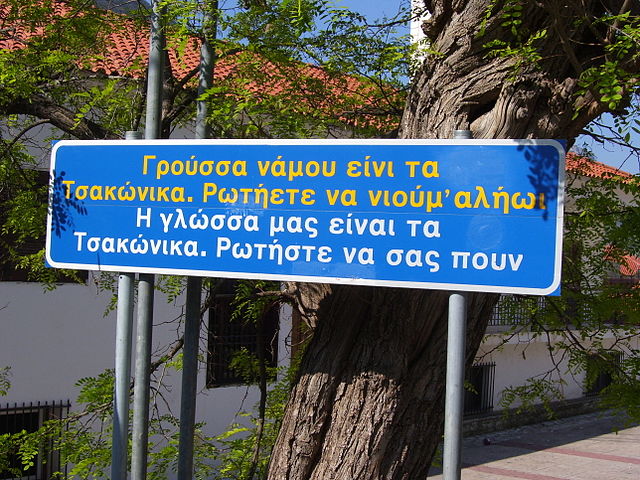Tsakonian or Tsaconian is a highly divergent modern variety of Greek, spoken in the Tsakonian region of the Peloponnese, Greece. Unlike all other extant varieties of Greek, Tsakonian derives from Doric Greek rather than from the Attic-Ionic branch. Although it is conventionally treated as a dialect of Greek, some compendia treat it as a separate language.
Tsakonian is critically endangered, with only a few hundred/thousand, mostly elderly, fluent speakers left. Although Tsakonian and standard Modern Greek are related, they are not mutually intelligible.
(Tsakonian/Greek) "Our language is Tsakonian. Ask and they'll tell you./Groússa námou eíni ta Tsakónika. Rotíete na nioúm' alíoi./I glóssa mas eínai ta Tsakónika. Rotíste na sas poun.", bilingual (Tsakonian and Standard Greek) sign in the town of Leonidio.
Greek is an independent branch of the Indo-European family of languages, native to Greece, Cyprus, Italy, southern Albania, and other regions of the Balkans, the Black Sea coast, Asia Minor, and the Eastern Mediterranean. It has the longest documented history of any Indo-European language, spanning at least 3,400 years of written records. Its writing system is the Greek alphabet, which has been used for approximately 2,800 years; previously, Greek was recorded in writing systems such as Linear B and the Cypriot syllabary. The alphabet arose from the Phoenician script and was in turn the basis of the Latin, Cyrillic, Coptic, Gothic, and many other writing systems.
Idealised portrayal of the author Homer
Greek inscription in Cypriot syllabic script



